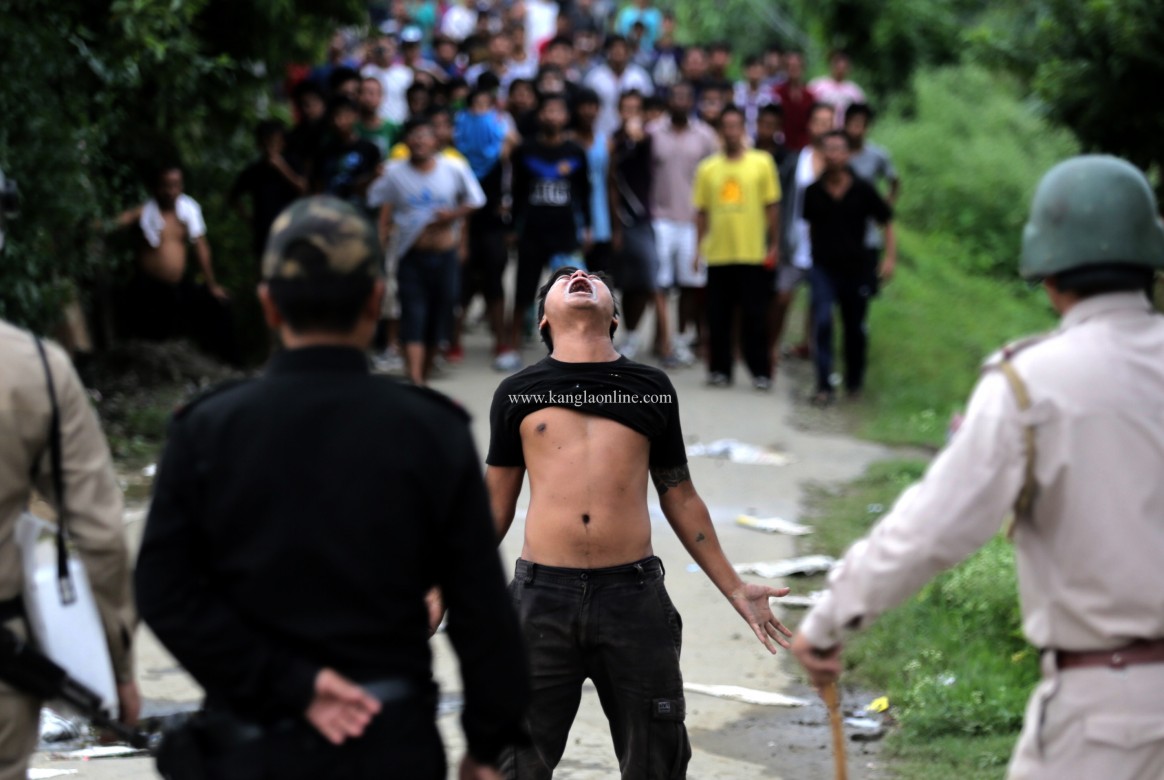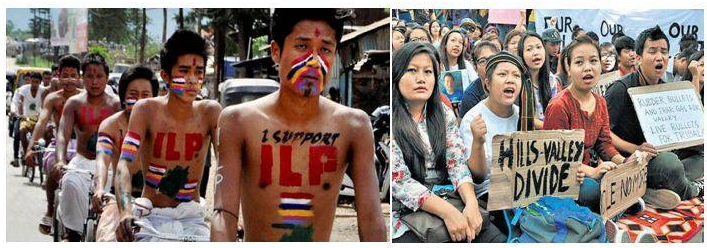The Three Bill Stalemate in Manipur has remained unresolved during the past 6 months with the adversaries in locked horns. It still is continuingg more of a game for political hardliners steadfast on their original stands making third party intervention a difficult proposition. One possible outcome of such a situation is obliteration of the original issue at stake when the fighting stags walk away from each other exhausted and no helps coming in. The issue goes unresolved and dormant only to come out again some other time probably in a different form. This is not the desired ending.
Then, probably we may need to know who has to solve the problem and how to look at the problem for a solution which is also amicable.
Let’s buy a philosophy that we can still agree when we don’t have to agree on everything.
Here is the scene of a joint press conference by American President Barack Obama and Canadian Prime Minister Justin Trudeau at White House during a recent visit.
Obama starts with a statement, “No two nations agree on everything!”
And he continues, “Our countries are no different, but in terms of our interests and values and how we approach the world, few countries match up the United States and Canada do.”
This is called candor. The statement refers to a negative reality and points to a positive maneuver of things between the two nations for solutions. It exudes mutual love, trust and friendship between the two leaders that form the very foundation of harmonious relationship.
Candor is no arrogance. It is an expression of courage and truthfulness. It means business. It lays the platform for parties to look at both problems and prospects in full honesty and find solutions agreeable to all.
The United States and Canada have many disagreements and they compete each other for many things. But their harmonious relationship makes it possible to talk everything candid and find solutions to problems between them.
Can we imagine Meitei leaders and tribal leaders stand side by side at a joint press conference and say, “Tribals and Meitei are different?”

They will need candor to avoid suppression of reality for political correctness and to say the truth. Simply uttering “we are one and the same” is not going to make different ethnic groups to look one.
Once they can give such a candid statement, they will be able to continue saying, “ …but we have lived together and shared history in this land. We will sort out our differences and solve our common problems by ourselves. We will not allow anybody to meddle.”
In the present problems of Manipur involving the Meitei and the tribals on a variety of issues, candor seems to be missing. Leaders of different groups seem to avoid each other and act at commands by others and not at their free will. They find hate speech a medium of expression for their group patriotism, serving ultimatum an expeditious way of forwarding their interest, ceasing offices and business the only way of effective protests. Various CSOs blame the weak government and at the same time try to unilaterally dictate their terms.

All these are indicative of our inherent weakness and incompetency in handling the problems. The sectarian pursuits often sought are not congruent with the truth-finding process which is the essence of conflict management.
Conflicts are inevitable in societies especially when they are conglomerates of diverse ethnic groups as we see in Manipur. Conflicts are not necessarily bad. They give us a chance of self-discovery and of understanding the needs of others sharing the common space. However, conflicts are damaging when we fail to manage them timely and ethically.
First of all, Meitei and the tribals have to agree that there is a problem and the problem stems from the fact that they are different and unequal.
The next step is to separate the problem from their personal attributes like emotion (group patriotism, antagonism etc.) and status (majority/minority/unique identity/superiority etc.) and attack it together. Meitei and tribals should take one side and attack the problem on the other side as their common enemy. Both should be open to the possibility of finding solution in a third idea different from their original claims.
This approach essentially needs restoring a harmonious relationship of love, respect and mutual trust among all ethnic groups with a firm belief that mutual acceptance, tolerance and co-existence are the basic tenets of modern living in pluralistic societies. This is a prerequisite.
The isolationist agenda of identity-conscious ethnic groups in search of peace within ethnically homogeneous societies have never brought good results in the modern world. If ethnic segregation starts in Manipur, there will be no end to the process and peace and progress will always remain elusive in the state.
The future of the different ethnic groups in Manipur lies in their co-existence and not in segregation. Let’s start believing in ourselves and start seeking solutions of our problems from ourselves and not from somebody else. Meitei and tribals should not be competing but cooperating in their perpetual journey of sharing a common habitat and steering development programs towards posterity.
___________________




